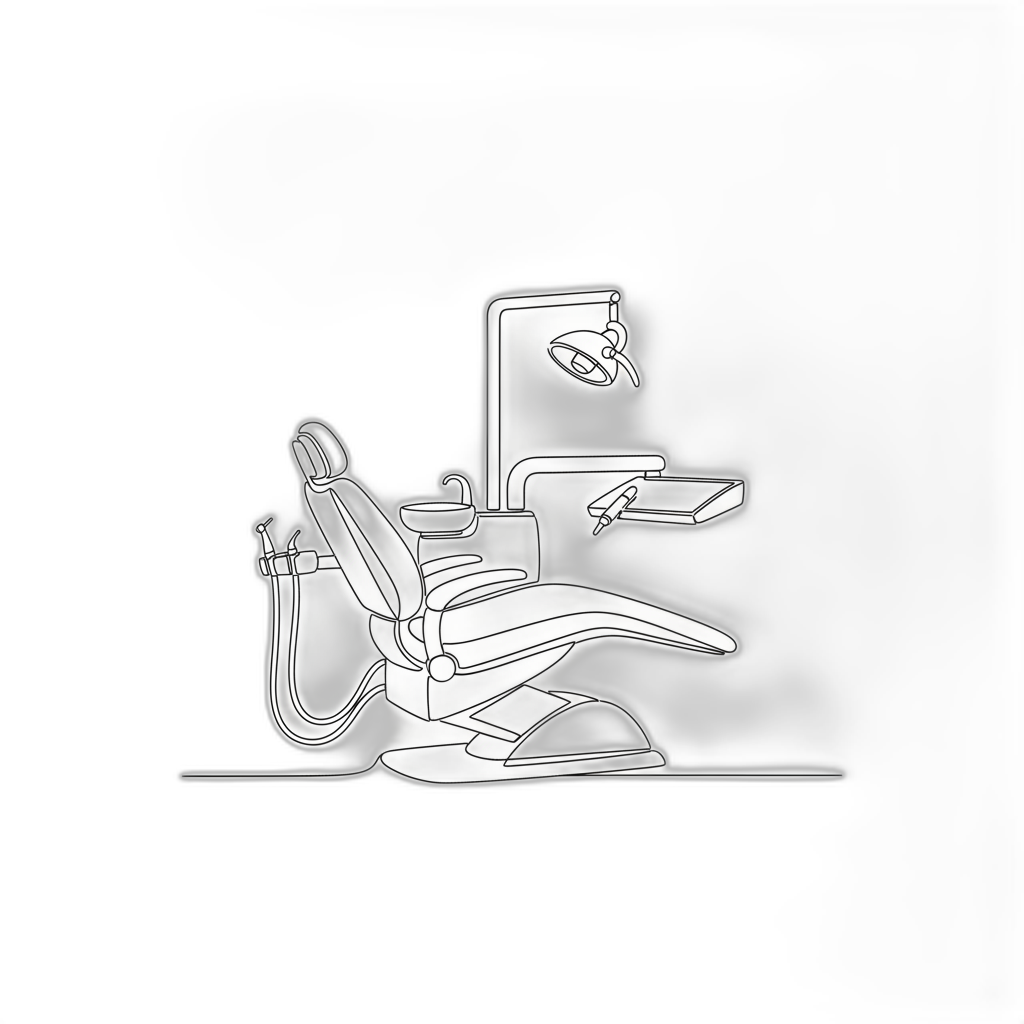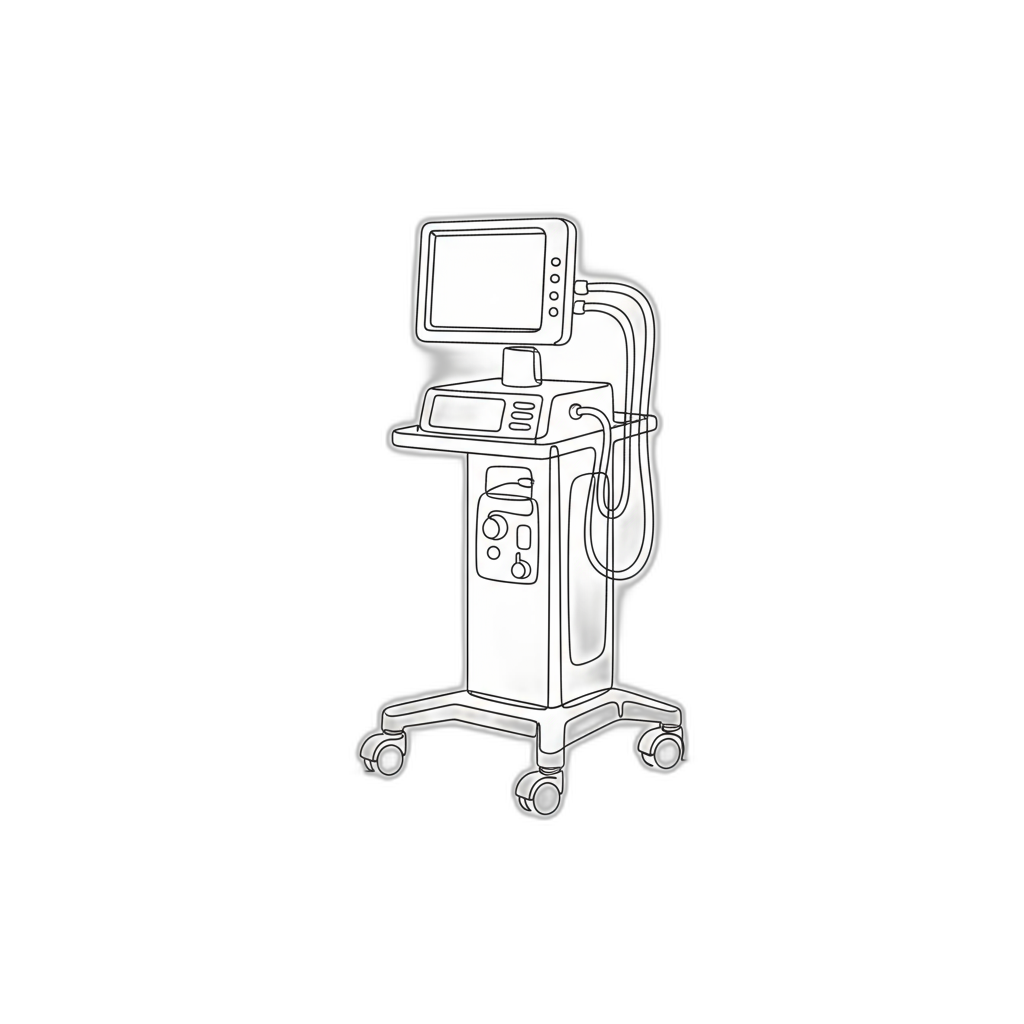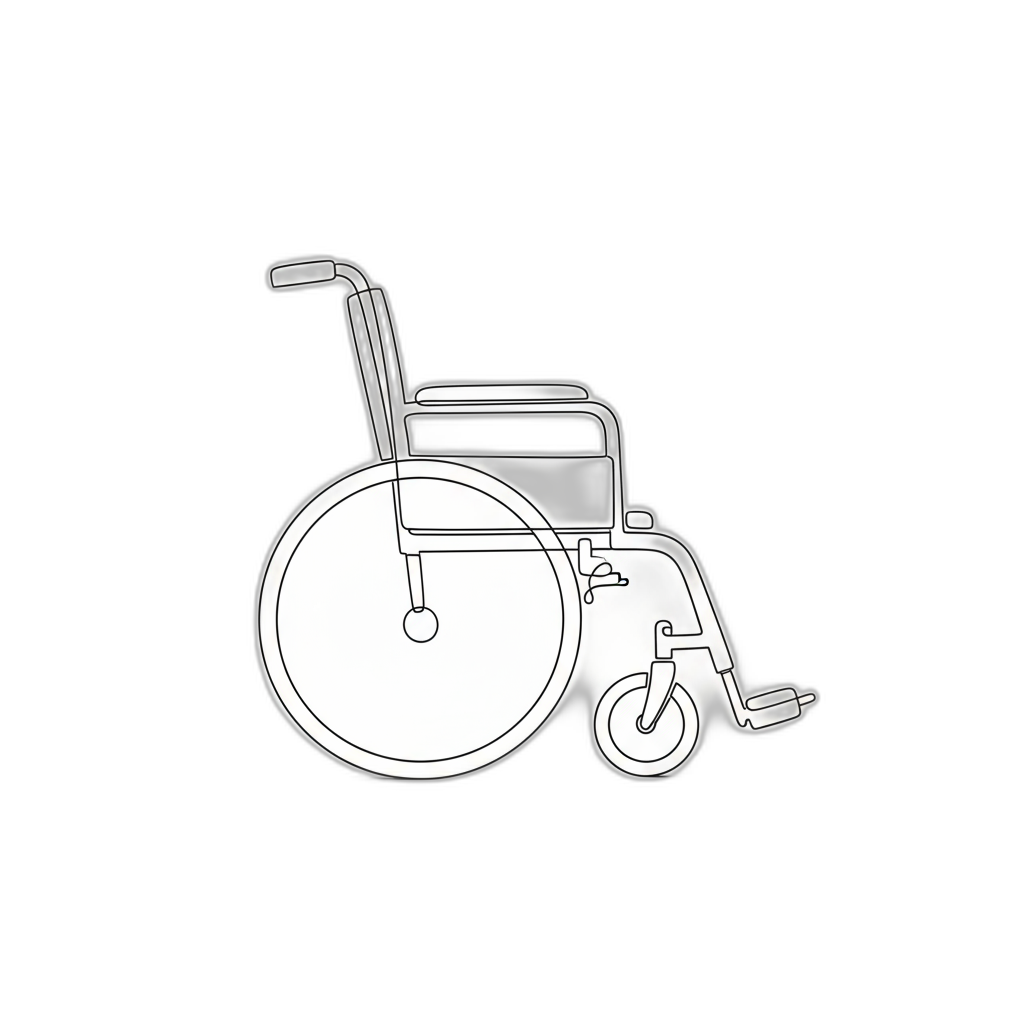A medical equipment appraisal is a sophisticated, comprehensive professional evaluation that determines the precise fair market value of medical devices and technologies within healthcare environments. This meticulous process involves a nuanced assessment of multiple critical factors that collectively influence the equipment's overall monetary worth.
The valuation encompasses a holistic examination of the equipment's current condition, operational functionality, technological relevance, and potential market demand. Professional appraisers conduct an in-depth analysis that goes beyond simple numerical calculations, integrating complex considerations such as equipment age, technological sophistication, compliance with current healthcare standards, and potential future utility.
Specialized appraisers utilize advanced methodological approaches to establish an accurate and defensible valuation. This involves extensive market research, comparative analysis of similar equipment, thorough inspection of physical and operational characteristics, and careful consideration of industry-specific depreciation standards.
The appraisal process considers multiple dimensions that impact equipment value, including technological obsolescence, maintenance history, regulatory compliance, and potential for future use. Each piece of medical equipment is evaluated with precision, recognizing that medical technology represents a significant financial investment for healthcare institutions.
These comprehensive assessments serve critical functions across the healthcare ecosystem, providing essential insights for financial planning, asset management, insurance documentation, and strategic decision-making. By offering an objective, detailed evaluation, medical equipment appraisals enable healthcare organizations to make informed choices about their technological resources and investments.
Medical equipment appraisers are specialized professionals who meticulously evaluate the value of medical devices and equipment across various healthcare contexts. These experts play a critical role in numerous scenarios, including insurance assessments, financial transactions, and strategic organizational planning.
Different types of appraisers bring unique perspectives and skill sets to their evaluations. Clinical appraisers concentrate on equipment actively used in patient care environments, examining performance, technological capabilities, and regulatory adherence. They often develop expertise in specific domains like diagnostic imaging, surgical technologies, or patient monitoring systems.
Financial appraisers apply a quantitative lens, analyzing market dynamics, economic trends, and potential return on investment. Their assessments are particularly valuable for healthcare organizations seeking precise valuation for resale, financial reporting, or strategic asset management.
Technical appraisers leverage deep engineering and technical knowledge to comprehensively assess medical device functionality. They scrutinize equipment age, maintenance history, operational performance, and technical specifications to determine comprehensive market value.
Regulatory appraisers specialize in ensuring medical equipment meets stringent health and safety standards. Their evaluations consider compliance history, certification requirements, and alignment with current regulatory frameworks, providing crucial insights for healthcare providers navigating complex compliance landscapes.
Estate appraisers focus on medical equipment valuation during asset distribution scenarios, such as professional retirement or estate settlements. They provide objective, market-aligned assessments that support fair and accurate asset valuation.
The selection of an appropriate medical equipment appraiser depends on the specific evaluation objectives, ensuring stakeholders receive precise, contextually relevant valuations that support informed decision-making.
Medical equipment appraisals serve as a critical tool for healthcare organizations, offering comprehensive insights into the financial and operational landscape of medical assets. These assessments go far beyond simple valuation, providing strategic advantages across multiple business dimensions.
Financial reporting relies heavily on accurate equipment valuation. By establishing precise current market values, healthcare providers can optimize depreciation calculations, enhance asset management strategies, and create more transparent financial statements. This precision supports better budgeting and resource allocation decisions.
Taxation compliance represents another crucial aspect of medical equipment appraisals. When organizations consider equipment donations or need to document asset values, a professional appraisal becomes indispensable. These assessments help prevent potential tax complications and ensure regulatory adherence, particularly for donations exceeding specific monetary thresholds.
Insurance coverage requires meticulous valuation to protect significant medical equipment investments. An accurate appraisal guarantees that insurance policies genuinely reflect replacement costs, mitigating risks of underinsurance during potential loss, damage, or theft scenarios.
Legal proceedings often demand objective third-party equipment valuations. Whether resolving partnership disputes, managing organizational transitions, or navigating complex litigation, a professional appraisal provides authoritative documentation of asset worth, facilitating fair negotiations and informed decision-making.
Mergers, acquisitions, and equipment transactions also benefit significantly from comprehensive appraisals. Buyers and sellers can establish fair market values, negotiate confidently, and understand the true economic implications of medical equipment investments.
By embracing systematic medical equipment appraisals, healthcare organizations transform asset evaluation from a routine administrative task into a strategic management tool that supports financial integrity, operational efficiency, and long-term organizational planning.
Medical equipment appraisals have successfully transitioned into the digital era, offering clients comprehensive and accurate valuations through online platforms. The modern appraisal process leverages advanced technological tools to deliver precise assessments without requiring traditional in-person evaluations.
Clients can initiate an online appraisal by submitting detailed documentation about their medical equipment. This typically includes high-resolution photographs, precise model numbers, equipment specifications, and a comprehensive description of its current condition. Professional appraisers utilize these digital submissions to conduct thorough and reliable assessments.
Advanced digital platforms now enable interactive appraisal experiences through video conferencing technologies. These virtual consultations allow direct communication between appraisers and clients, facilitating real-time equipment demonstrations and immediate clarification of technical details. Such approaches ensure a transparent and comprehensive valuation process.
Every online medical equipment appraisal adheres to the Uniform Standards of Professional Appraisal Practice (USPAP), guaranteeing professional integrity and compliance across different states. The digital methodology maintains the same rigorous standards as traditional in-person assessments, providing clients with reliable and legally recognized valuation documentation.
The online appraisal process offers significant advantages, including convenience, reduced wait times, and broader accessibility. Clients can now receive professional equipment valuations from anywhere, streamlining what was once a complex and time-consuming process.
What Makes Medical Equipment Appraisals Essential?
Key Importance of Medical Equipment Appraisals
Medical equipment appraisals are critical for healthcare organizations, providing comprehensive insights into asset management, financial planning, and strategic decision-making.
Financial Transparency and Reporting
- Provide accurate asset valuation for balance sheet reporting
- Enable precise financial representation of medical technology investments
- Support transparent financial analysis for stakeholders
Financing and Investment Considerations
- Facilitate loan applications and financing processes
- Help lenders assess risk and investment potential
- Potentially secure more favorable lending terms
Regulatory Compliance
- Ensure adherence to government valuation requirements
- Mitigate risks associated with asset reporting
- Support accurate documentation for potential audits
Insurance and Risk Management
- Streamline insurance claim processes
- Provide documented evidence of equipment value
- Support fair compensation in case of loss or damage
Strategic Equipment Management
- Inform decisions about equipment lifecycle
- Guide upgrade and replacement strategies
- Align technological investments with current market trends
Medical equipment appraisals transcend mere administrative tasks, serving as a crucial tool for maintaining organizational financial health and operational effectiveness.
Key Considerations in Medical Equipment Valuation
Essential Factors in Medical Equipment Valuation
Medical equipment valuation is a sophisticated process that demands a comprehensive understanding of multiple critical factors. Professionals must carefully evaluate several key elements to determine an accurate and fair market value.
1. Equipment Condition and Age
- Physical condition plays a pivotal role in determining equipment value
- Factors considered include:
- Overall wear and tear
- Maintenance history
- Technological upgrades
- Remaining functional capabilities
- Older equipment typically depreciates due to:
- Reduced technological relevance
- Potential repair costs
- Limited advanced features
2. Market Demand and Technological Trends
- Market dynamics significantly impact equipment valuation
- Key considerations include:
- Current healthcare technology trends
- Shifts in medical practice methodologies
- Regulatory changes affecting equipment usage
- Supply and demand fluctuations
- Rapid technological advancements can quickly alter equipment value
3. Manufacturer Reputation and Quality
- Brand reputation critically influences equipment valuation
- Evaluation criteria include:
- Manufacturer's market standing
- Product reliability history
- Warranty offerings
- Technical support capabilities
- Established manufacturers typically maintain higher resale values
4. Regulatory Compliance and Certification
- Compliance is crucial in medical equipment valuation
- Important compliance factors:
- Industry-specific safety standards
- Certification status
- Regulatory approvals
- Potential legal restrictions
- Compliant equipment typically commands higher market values
5. Functional Versatility and Applications
- Equipment's functional range significantly impacts its value
- Valuation considerations include:
- Multi-purpose capabilities
- Adaptability across different medical settings
- Specialized versus generalized functionality
- Potential for future medical applications
- Equipment with broader applications typically maintains higher value
A nuanced and comprehensive approach to these key considerations ensures a precise and reliable medical equipment valuation, enabling stakeholders to make informed financial and operational decisions in the healthcare industry.
Navigating the Medical Equipment Appraisal Landscape
Medical equipment appraisal represents a sophisticated valuation process critical to healthcare operations, involving precise assessment of medical devices for multiple strategic purposes such as insurance, sales, financing, and regulatory compliance.
The Complex World of Medical Equipment Valuation
Healthcare professionals must understand the nuanced landscape of equipment assessment, recognizing that valuation strategies vary dramatically across different types of medical technology.
Equipment Categories and Considerations
Medical assets range widely, including:
- Diagnostic imaging equipment (MRIs, CT scanners)
- Surgical instruments
- Rehabilitation devices
- Specialized medical monitoring systems
Critical Valuation Factors
Successful medical equipment appraisal hinges on understanding several key determinants:
- Equipment Condition and Age
- Wear and maintenance directly impact valuation
- Well-maintained devices retain higher market value
- Market Dynamics
- Supply and demand significantly influence pricing
- Current inventory levels affect equipment worth
- Regulatory Compliance
- Devices meeting health and safety standards command premium valuations
- Continuous monitoring of industry regulations is essential
- Technological Evolution
- Emerging technologies rapidly depreciate older equipment
- Innovation cycles accelerate value transformation
Strategic Importance of Comprehensive Appraisal
A meticulous appraisal process enables healthcare organizations to:
- Make informed financial decisions
- Optimize investment strategies
- Maintain high-quality patient care standards
- Ensure operational efficiency
By embracing a holistic approach to medical equipment valuation, healthcare providers can effectively manage technological assets in an increasingly dynamic market landscape.
The Strategic Process of Medical Equipment Assessment
Medical equipment appraisal is a sophisticated process that enables healthcare organizations to strategically manage and optimize their critical assets. This comprehensive approach supports financial reporting, compliance, and operational planning.
Key Components of Medical Equipment Assessment
Comprehensive Initial Inventory
- Catalog each medical equipment item in detail
- Document specific attributes:
- Make and model
- Age of equipment
- Current condition
- Functional status
- Establish a robust data foundation for accurate valuation
Comprehensive Market Research
- Analyze current healthcare technology trends
- Evaluate industry-specific market dynamics
- Identify comparable equipment sales
- Consider critical contextual factors:
- Technological advancements
- Regulatory environment changes
- Healthcare delivery model shifts
Advanced Valuation Methodologies
Appraisers utilize sophisticated approaches to determine equipment value:
- Cost Approach: Evaluates replacement or reproduction cost
- Market Approach: Compares similar equipment sales
- Income Approach: Projects potential future earnings generated
Strategic Collaboration
Continuous communication between healthcare administrators and appraisers ensures a nuanced understanding of equipment's operational context and strategic significance.
Holistic Impact
A meticulous medical equipment appraisal transcends financial assessment, contributing to broader organizational objectives by enhancing operational efficiency, maintaining regulatory compliance, and ultimately supporting superior patient care.
Factors Driving Medical Equipment Value
Understanding the intricate factors that drive medical equipment value is crucial for healthcare providers and financial stakeholders. Several key elements influence the worth of medical devices and equipment, creating a complex valuation landscape.
Key Factors Impacting Medical Equipment Valuation
1. Equipment Age and Condition
- Newer devices typically retain higher value
- Equipment in excellent condition commands premium pricing
- Well-maintained devices demonstrate longer operational potential
- Older or outdated equipment experiences significant value depreciation
2. Technological Advancements
- Cutting-edge technology drives higher equipment values
- Rapid digital transformation reshapes medical device markets
- Modern tools with integrated software and smart capabilities are prioritized
- Older models risk becoming technologically obsolete
3. Regulatory Compliance
- Strict adherence to safety and efficacy standards is critical
- Updated certifications enhance equipment marketability
- Non-compliant equipment experiences substantial value reduction
- Continuous regulatory alignment protects equipment investment
4. Market Demand and Economic Dynamics
- Supply and demand principles directly influence equipment valuation
- High-demand equipment in limited supply commands premium pricing
- Healthcare policy changes can dramatically impact market conditions
- Economic fluctuations create variability in equipment values
5. Usage History and Operational Background
- Frequency and intensity of equipment usage affects valuation
- Clinical setting wear and tear directly impacts market value
- Comprehensive usage documentation provides transparent valuation insights
- Maintenance records can mitigate potential value reductions
A comprehensive medical equipment appraisal requires nuanced understanding of these interconnected factors to establish an accurate and fair market value.
Valuation Methodologies for Medical Equipment
Understanding the valuation of medical equipment is essential for healthcare providers, financial institutions, and insurance companies. Accurate appraisals are crucial for ensuring compliance, effective asset management, and strategic decision-making.
Key Valuation Methodologies for Medical Equipment
1. Cost Approach
The cost approach determines equipment value by calculating:
- Current replacement cost of the equipment
- Depreciation factors
- Expenses required to acquire a similar new device
This methodology is particularly effective for unique or specialized medical devices with limited market comparables.
2. Market Approach
The market approach evaluates value through:
- Analysis of comparable medical equipment transactions
- Consideration of asset age and condition
- Current market demand and trends
This method provides a clear perspective on asset worth in the current marketplace, ideal for buying, selling, or financing purposes.
3. Income Approach
The income approach focuses on:
- Potential income generation over the equipment's useful life
- Calculation of future cash flows
- Applying appropriate discount rates
Most valuable for revenue-generating equipment like diagnostic imaging systems, this approach helps quantify the economic potential of medical assets.
4. Hybrid Approach
The hybrid methodology combines strengths by:
- Integrating cost and market valuation perspectives
- Addressing equipment with specific configurations
- Providing a comprehensive valuation assessment
This flexible approach allows for nuanced evaluation of complex medical equipment assets.
Each valuation methodology offers unique insights, enabling stakeholders to make informed decisions and accurately represent medical equipment values in financial documentation.
Compliance and Regulatory Insights
In the complex landscape of medical equipment valuation, compliance and regulatory insights are foundational to conducting accurate and ethical assessments. These standards protect stakeholder interests and maintain the highest levels of professional credibility.
Key Regulatory Frameworks
Medical equipment appraisers must navigate multiple critical regulatory environments:
- FDA Guidelines: Ensuring safety and effectiveness standards are met
- CMS Regulations: Monitoring healthcare equipment operational compliance
- ISO Standards: Establishing quality and operational efficiency benchmarks
Compliance Considerations by Equipment Type
Different medical equipment categories require specialized regulatory understanding:
Imaging Devices
- Radiation safety protocols
- Precision calibration requirements
- Patient exposure documentation
Surgical Instruments
- Sterilization standards
- Material integrity verification
- Manufacturing traceability
Diagnostic Tools
- Accuracy and reliability testing
- Software validation
- Performance consistency metrics
Impact of Regulatory Compliance
Comprehensive regulatory adherence significantly influences equipment valuation by:
- Enhancing market perception
- Mitigating potential legal risks
- Demonstrating operational excellence
- Increasing potential resale value
Transparency in Appraisal Process
Professional appraisers must prioritize clear communication about compliance status, recognizing that regulatory transparency directly impacts buyer confidence and equipment marketability.
By maintaining rigorous awareness of evolving regulatory landscapes, stakeholders can ensure precise, ethical, and defensible medical equipment valuations.
Selecting the Right Medical Equipment Appraiser
Choosing the Right Medical Equipment Appraiser: A Comprehensive Guide
Selecting a qualified medical equipment appraiser is a critical decision that can significantly impact your organization's financial strategies and asset management. The right professional will provide an accurate, comprehensive valuation that considers multiple critical factors.
Essential Credentials to Evaluate
- Professional Designations
- Seek appraisers with industry-recognized certifications like Certified Equipment Appraiser (CEA)
- Verify credentials that demonstrate specialized medical equipment valuation expertise
- Specialized Industry Knowledge
- Expertise across diverse medical equipment types, from diagnostic imaging to patient monitoring systems
- Understanding of complex technological and functional value assessment
Comprehensive Appraisal Methodology
- Valuation Approaches
- Utilization of multiple valuation methods: cost, market, and income approaches
- Comprehensive analysis that provides a holistic equipment value assessment
- Market Intelligence
- Active tracking of technological advancements
- Current awareness of regulatory changes affecting medical equipment valuation
Reputation and Reliability Indicators
- Professional Validation
- Review client testimonials and case studies
- Check memberships in professional appraisal organizations
- Communication Quality
- Transparent, detailed reporting
- Clear explanation of valuation methodologies
- Responsive and accessible communication
Key Selection Considerations
- Verify professional certifications
- Assess specialized medical equipment knowledge
- Evaluate comprehensive valuation approaches
- Review professional reputation
- Confirm clear communication practices
By meticulously evaluating these critical factors, you can confidently select a medical equipment appraiser who will provide accurate, reliable, and comprehensive valuation services tailored to your specific needs.
Maximizing Value: The Impact of Accurate Appraisals
In the rapidly evolving healthcare landscape, understanding the true value of medical equipment is paramount for strategic financial management and operational decision-making. Accurate appraisals provide critical insights that empower healthcare providers, investors, and stakeholders to make informed choices.
Key Benefits of Comprehensive Medical Equipment Appraisals
Enhanced Asset Management
- Identify underutilized or obsolete equipment
- Enable strategic decisions about equipment:
- Retrofitting
- Selling
- Donating
- Maximize financial resources
- Ensure cutting-edge technology supports patient care
Regulatory Compliance and Risk Mitigation
- Critical for financial audits
- Essential for insurance claims
- Supports legal documentation
- Minimizes risks associated with:
- Inaccurate reporting
- Asset misvaluation
Financial Transaction Support
- Influences key financial processes:
- Mergers
- Acquisitions
- Funding opportunities
- Provides credible asset valuation for:
- Investors
- Lenders
- Potential partners
- Potentially enhances:
- Borrowing capacity
- Investment attractiveness
Strategic Financial Planning
- Detailed understanding of equipment:
- Depreciation rates
- Lifecycle value
- Enables precise:
- Resource allocation
- Capital expenditure planning
By leveraging comprehensive medical equipment appraisals, healthcare organizations can transform asset management from a routine process to a strategic advantage, driving operational efficiency and financial optimization.
Your Medical Equipment Appraisal Questions Answered
Medical equipment appraisal is a specialized field that assesses the value of medical devices, machinery, and technology used in healthcare settings. Whether for financial decision-making, insurance purposes, or asset management, understanding the intricacies of these appraisals is crucial.
Understanding Medical Equipment Appraisal
A medical equipment appraisal provides an unbiased estimate of the fair market value of equipment such as MRI machines, ultrasound devices, and surgical instruments. This comprehensive valuation process is essential for various critical scenarios in healthcare management.
Key Reasons for Medical Equipment Appraisals
- Insurance Coverage: Accurate appraisals ensure appropriate insurance protection against potential loss or damage
- Financial Transactions: Provides transparent and reliable pricing during equipment purchases, sales, or transfers
- Strategic Asset Management: Enables healthcare facilities to make informed decisions about equipment investments and budget allocation
- Regulatory Compliance: Supports accurate financial reporting and accounting requirements
Valuation Methodologies
Professional appraisers employ multiple sophisticated approaches to determine equipment value:
Cost Approach
Calculates the replacement cost of equipment while accounting for depreciation, wear and tear, and technological obsolescence.
Market Approach
Analyzes recent sales of comparable medical equipment to establish a current market value benchmark.
Income Approach
Evaluates the potential revenue-generating capabilities of the equipment over its remaining useful life.
Professional Appraisal Considerations
Qualified appraisers meticulously assess multiple factors during the valuation process, including:
- Equipment age and overall condition
- Technological specifications
- Current market demand
- Maintenance history
- Potential for future upgrades
By understanding the comprehensive process of medical equipment appraisal, healthcare providers can make strategic decisions that optimize their technological investments and financial resources.









.avif)









.svg)













